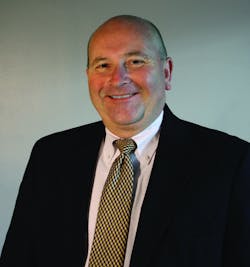Commercial airports in Texas have recently announced the formation of the Texas Commercial Airports Association (TCAA) in an effort to collaborate on airport issues and educate lawmakers with a collective voice.
In a press release, Mario Diaz, director of the Houston Airport System and TCAA chairman states, "By coming together as an organization, the passenger airports in Texas can speak through one clear, strong voice. Collectively, we believe we have greater influence than any one of our airports can have individually."
According to the news report, Texas airports with commercial flights serve more than 135 million passengers annually. A news conference held in San Antonio brought a key audience together as it was held in conjunction with the 7th annual Texas Transportation Forum.
Several issues of mutual interest to Texas airports led to the formation of the association, including airport funding, development and infrastructure needs, security policy, business initiatives, and operational concerns.
airport business Magazine spoke with San Antonio International Airport director, Frank Miller, who was named treasurer for the newly formed association; following are edited excerpts:
airport business: Tell me about how the initiative began, and the main thrust behind the effort ...
Frank Miller: We have been talking about this for close to a year; the first meeting was here in San Antonio, and the focus was to talk about the need for the commercial airports to form an association in an effort to promote issues that we have.
Obviously there are issues within the state, but there are also a lot of issues that we deal with at the national level in Washington. The underlying thought is that if you can get the airports working together as an association, speaking with one voice, and having the opportunity collectively to meet with elected officials both at the state and the national level — it’s a stronger story, and really helps promote the issues that affect multiple airports here.
ab: Is TCAA modeled after other state airport associations, such as those in California, New York, and Florida?
Miller: Yes. If you look at other large states such as those - they all recognize the benefit of having an association to deal with common issues. And again, to educate and inform as to why these issues are important to the airports, and in some cases, how the issues impact us financially.
Really, the story is to say — this is what is impacting Texas airports. I spent some 20 years in Florida with that state association; we did a lot of work at the state level.
When I was there, we were also beginning to recognize the need to collectively conduct business on the Hill in Washington. I remember at one time, there were some ten different airports in Florida that were making rounds meeting with elected officials.
It really is more efficient, and it is a stronger story - a stronger message. It is our opportunity to let lawmakers know why and how these issues impact the airports.
ab: Can any commercial airport in Texas become a member? How often will the association meet?
Miller: Any airport providing commercial service in Texas can be a member. I think the smallest is Beaumont, and it is included in our list of airports that are eligible.
We will meet quarterly, and it is likely we will have one meeting that will be an annual event. Of course, if there is anything that might emerge that would require us to get together, even via conference call, we can do that as well.
ab: Did airports in Texas look for best practice from other airport associations when forming the TCAA?
Miller: One of the first organizational types of meetings was held here in San Antonio. Prior to that, there was a group of us that met in Dallas. At that point, I related some of my experience in Florida.
During that first organizational meeting in San Antonio, we had a representative from California here who talked about what the association has done there. We tried to identify the best practices that the organization had developed as a part of forming the association in California.
ab: What are some of the issues of mutual interest among Texas airports?
Miller: A few things we have identified from a financial side … the passenger facility charge (PFC) which airports can levy on passengers flying out of our airports is still currently at $4.50. That has not been adjusted in more than ten years. We have a need to see that increase. We have to find a better way of getting the message to our elected officials on why that is so important.
We also have bonds that airports issue; some of those bonds are subject to the alternative minimum tax (AMT) which we feel should not apply to airports. We have a temporary waiver; Massachusetts Senator John Kerry has introduced an amendment to a bill to allow a waiver for another year. We would ultimately like to see that be a permanent waiver for airports.
On the non-financial side, and this is something that really affects DFW and Houston as gateway international airports – Customs facilitation and the staffing levels that Customs has at the airports. The concern there is trying to find a way to minimize the amount of time it takes to get through the Customs process.
At our last meeting, there were some State issues that came up such as one regarding wind towers, and how the towers near an airport could impact navigational systems. Those are the types of issues that we will be looking at.
It really is a very dynamic type of agenda because our industry is pretty dynamic, and has changed rapidly. We want to be able to respond to those types of issues.
ab: Can the association also be a tool, so to speak, for sharing operational best practice among the airports in Texas?
Miller: That was discussed at our board meeting recently … there was a committee formed called specicially for operations. As we begin to say ‘what areas should we be looking at as part of the association’, I nominated my assistant director here in San Antonio to chair that committee.
The reason for that is part of that committee will be looking at a SMS. We are a pilot airport for SMS, so we have made the offer that we would be more than happy to host any kinds of meetings to help other airports, especially the smaller ones, to get a better understanding of the program and the impact it could have. For the smaller airports, the concern is how many more people will have to be hired with regard to safety.
A major benefit of the association is the opportunity to meet four or more times per year. As people begin to know each other better, it opens up a lot more opportunities to share information.
About the Author

